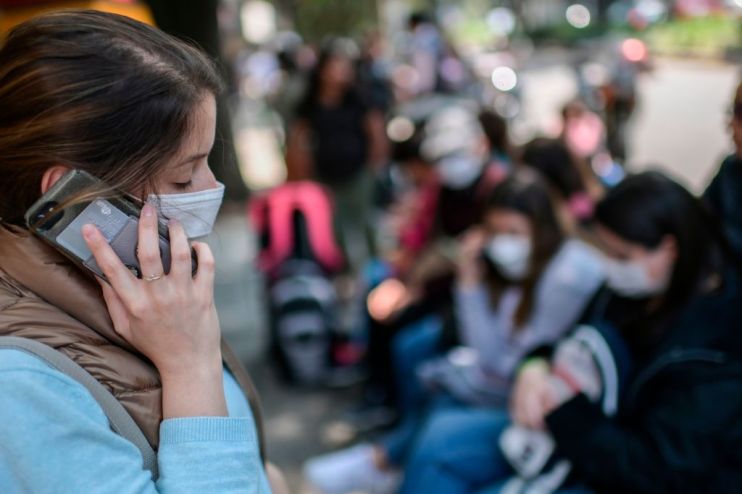Government set to use mobile signals to monitor virus outbreak

The government has approached the UK’s mobile operators about using phone signals as part of its efforts to tackle the coronavirus outbreak.
Officials are in talks with O2, Vodafone, EE and Three over tracking data from the UK’s 84m active mobile devices to help authorities fight the pandemic.
The data is anonymised — meaning individuals could not be identified — and its use is in compliance with UK and EU data privacy laws.
The measures could allow the government to create so-called heat maps to monitor the movement of citizens.
Vodafone has already launched the service in Italy, mapping out movements of people in Lombardy — the European epicentre of the outbreak that has been put under lockdown.
It is not clear whether the UK would use the data to monitor quarantine compliance should the country be placed under total lockdown.
One possible use of the data would be for food supplies, meaning authorities could prioritise where to send supplies in case of shortages.
The operators already use so-called crowd insights for commercial purposes, but the measures would mark the first major use of mobile data as part of a stringent public health campaign.
Similar measures have also been rolled out in Germany and Austria, where Deutsche Telekom and A1 have shared data on users.
In Greece, the government has asked operators to send a text to anyone entering the country advising them to self-isolate for 14 days.
The measures are less draconian than those employed in countries such as China, Taiwan and South Korea, which use smartphone location readings to trace the contacts of individuals who have tested positive or to enforce quarantine orders.
UK mobile providers have also been asked to provide information services for the government, meaning important announcements could be sent via text message to the entire UK population or to specific areas.
These functions have been trialled since 2013 and have previously been employed to warn about flooding.
It comes as mobile operators launch an industry-wide effort to maintain key services amid a surge in demand caused by the pandemic.
All four networks have experienced outages over the last 24 hours after Prime Minister Boris Johnson urged people to work from home.
The networks have pledged to increase network capacity to help cope with the demand and changing usage patterns throughout the day. O2 and Three have also waived data charges on all NHS UK websites.
Kester Mann, telecoms analyst at CCS Insight, said mobile providers could provide crucial data to help monitor the spread of the virus, adding it was “heartening” to see firms offer free access to NHS services.
“However, operators may consider going further by temporarily easing some data caps and lifting other restrictions,” he said.
Hamish MacLeod, director of industry body Mobile UK, said: “The mobile industry is working very closely with the government to ensure that our critical mobile networks can handle the extra demand anticipated due to the coronavirus.”